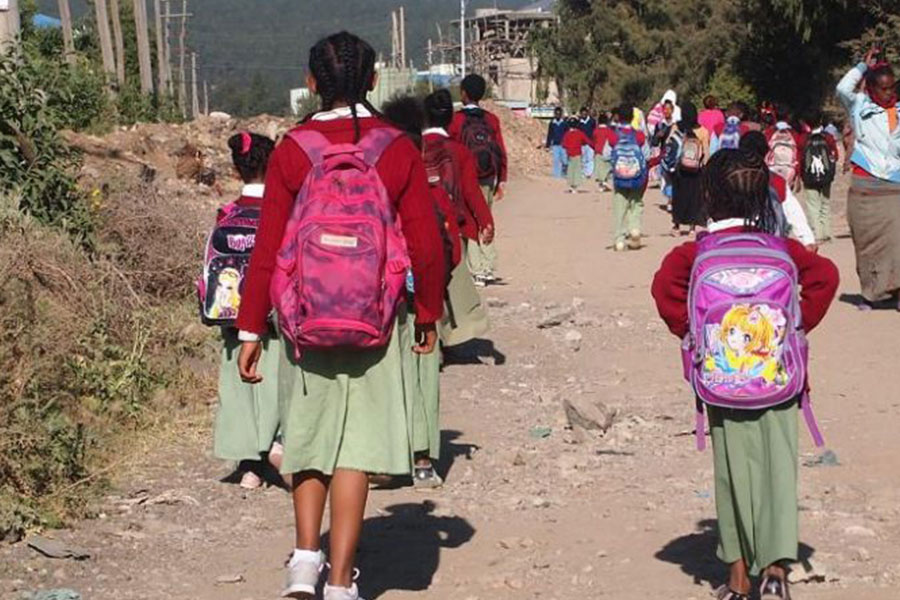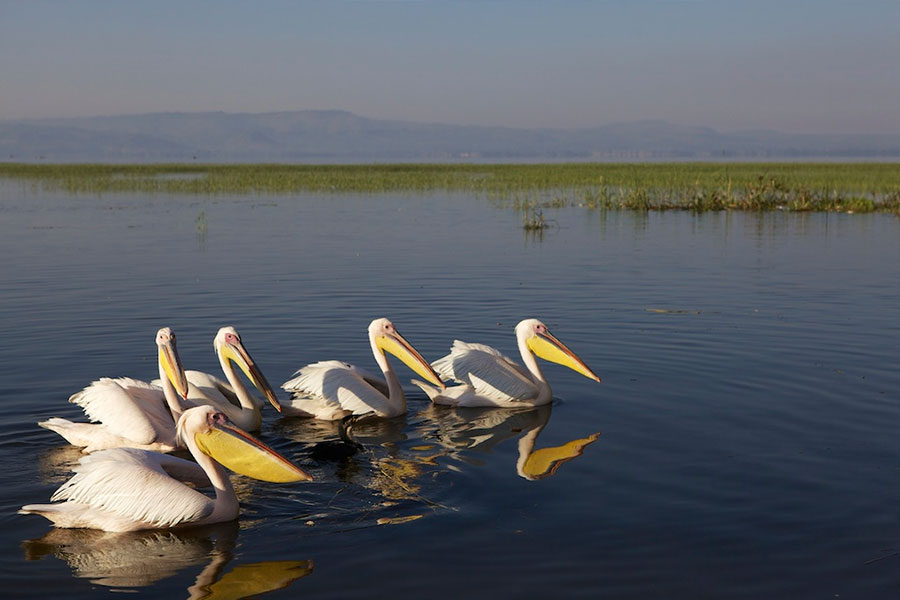
Aug 17 , 2019
By Tibebu Bekele
This has been a turbulent week for the world economy. The US President Donald Trump announced via Twitter that his government would be adding a 10pc tariff to 300 billion dollars worth of Chinese goods. This is in addition to previous tariffs put on Chinese goods as part of the trade war between the two giants. Not surprisingly, China retaliated by devaluing its currency.
Soon after, the ripple effect went around the globe. Germany, which is a big exporter to China, led the adversely affected. Reports announcing downward trends in the UK and Sweden followed. Also, the slowing Chinese economy and political events in Hong Kong also contributed to the negative picture.
These events have led a significant number of economic forecasters to increase the odds of a recession hitting the world economy next year. The International Monetary Fund (IMF) released lower numbers of economic growth for this year. The IMF report cited the trade wars as harmful to the world economy and warned of the ripple effects impacting every corner of the globe. All this is injecting uncertainty into the markets. In the end, the action between only two countries, however big their economies, and decisions made by only a handful of people, however powerful, will affect the lives of billions of people all around the globe.
This goes to show how interrelated the world really is. Despite the rise of nationalistic rhetoric and the increased nationalistic fervour from the US to Europe to China, there is really no way of decoupling from the international marketplace. Whether they like it or not, countries are intertwined by mutual interests that in the long term tie all states’ destinies together.
The rise of nationalistic fervour and the desire to run away from challenging global problems is not new. In fact, the country that came out as a leader and the biggest winner in the Second World War, the United States, ironically did not want anything to do with it initially. In fact, its misguided effort to bury its head in the sand and try to avoid getting involved at any cost prolonged the war and increased the price paid by all.
The big lesson then was that the way human beings have evolved and technology has progressed meant that isolationism is practically impossible. Therefore, instead of retreating, the better answer is engagement under a carefully constructed international order.
Thus, the formation of the Bretton Woods institutions to rebuild the post-war economy and facilitate international economic cooperation on the one hand and the United Nations on the other to do the same on the political front.
That international architecture has served the world very well. There has been no world war for over 70 years yielding a relative peace dividend. There has been almost uninterrupted human progress in all measures of human development. This did not happen by accident.
It was the result of an underlying philosophy of liberalism that was based on the ideals of the brotherhood of man, the supremacy of the rule of law and collective security. It was premised on the faith that international trade with all its imperfections will bring the greatest benefits to the human race. And it has worked.
That does not mean there were no bumps on the road. There have been several challenges, but none like what we have faced since the financial crisis of 2008. The backlash at globalisation as a result of that crisis has given rise to populism and nationalism that is spreading mistrust in multilateral organisations and planting discord in the world.
This too has happened before. The first wave of globalisation was galloping full speed ahead until about 1914. The economic challenges of the time then panicked the US into passing a tariff act that kick-started retaliatory measures by the other major economic powers. That stalled the era of global trade and cooperation and ushered in an era of economic ruin that lasted for years, causing immense suffering. One can only hope that history does not repeat itself this time around.
PUBLISHED ON
Aug 17,2019 [ VOL
20 , NO
1007]


View From Arada | Aug 28,2021

Sunday with Eden | Jan 31,2021

Life Matters | Apr 10,2021

Radar | Jan 16,2021

Radar | May 26,2021

Sunday with Eden | Aug 28,2021


Radar | Mar 11,2024

Viewpoints | Oct 16,2021

Sunday with Eden | Aug 19,2023

My Opinion | 131673 Views | Aug 14,2021

My Opinion | 128039 Views | Aug 21,2021

My Opinion | 126001 Views | Sep 10,2021

My Opinion | 123622 Views | Aug 07,2021

Dec 22 , 2024 . By TIZITA SHEWAFERAW
Charged with transforming colossal state-owned enterprises into modern and competitiv...

Aug 18 , 2024 . By AKSAH ITALO
Although predictable Yonas Zerihun's job in the ride-hailing service is not immune to...

Jul 28 , 2024 . By TIZITA SHEWAFERAW
Unhabitual, perhaps too many, Samuel Gebreyohannes, 38, used to occasionally enjoy a couple of beers at breakfast. However, he recently swit...

Jul 13 , 2024 . By AKSAH ITALO
Investors who rely on tractors, trucks, and field vehicles for commuting, transporting commodities, and f...

Jun 28 , 2025
Meseret Damtie, the assertive auditor general, has never been shy about naming names...

Jun 21 , 2025
A well-worn adage says, “Budget is not destiny, but it is direction.” Examining t...

Jun 14 , 2025
Yet again, the Horn of Africa is bracing for trouble. A region already frayed by wars...

Jun 7 , 2025
Few promises shine brighter in Addis Abeba than the pledge of a roof for every family...

Jun 29 , 2025
Addis Abeba's first rains have coincided with a sweeping rise in private school tuition, prompting the city's education...

Jun 29 , 2025 . By BEZAWIT HULUAGER
Central Bank Governor Mamo Mihretu claimed a bold reconfiguration of monetary policy...

Jun 29 , 2025 . By BEZAWIT HULUAGER
The federal government is betting on a sweeping overhaul of the driver licensing regi...

Jun 29 , 2025 . By NAHOM AYELE
Gadaa Bank has listed 1.2 million shares on the Ethiopian Securities Exchange (ESX),...